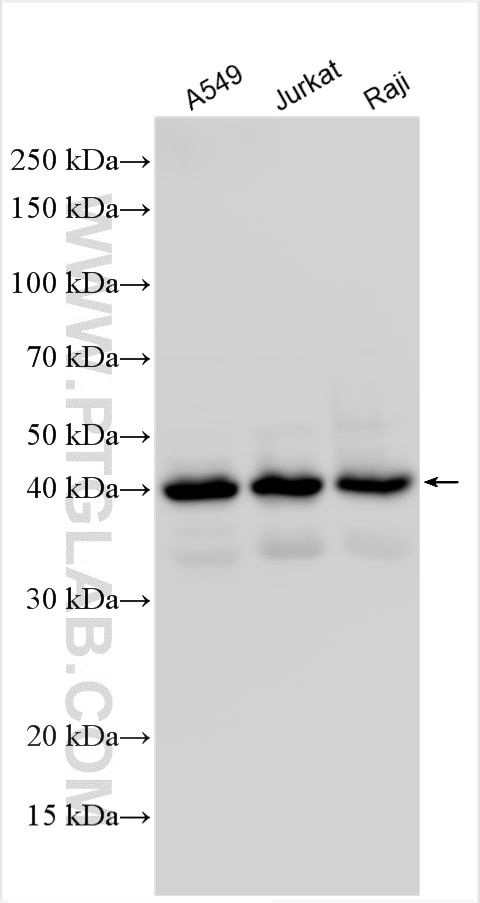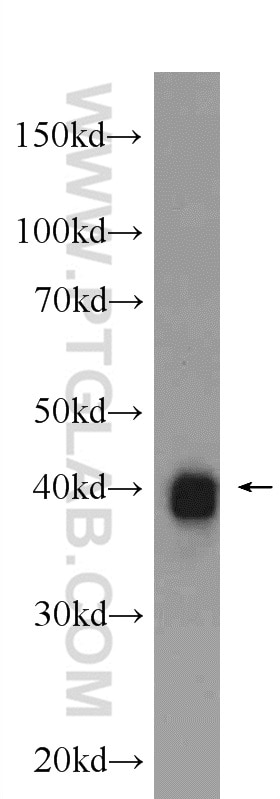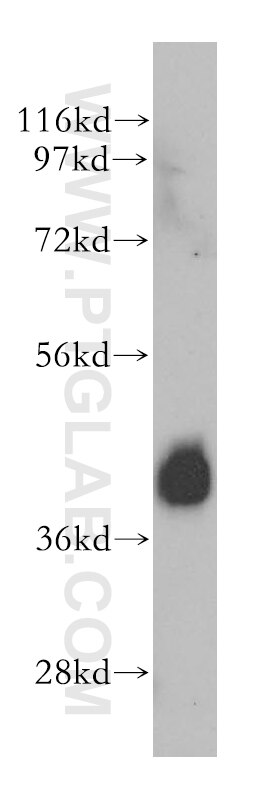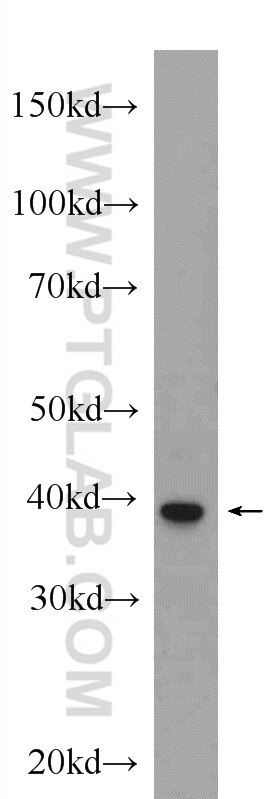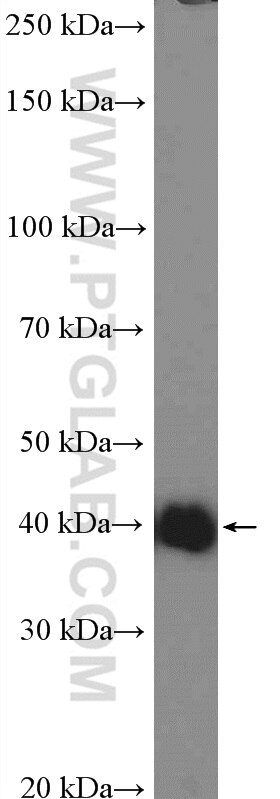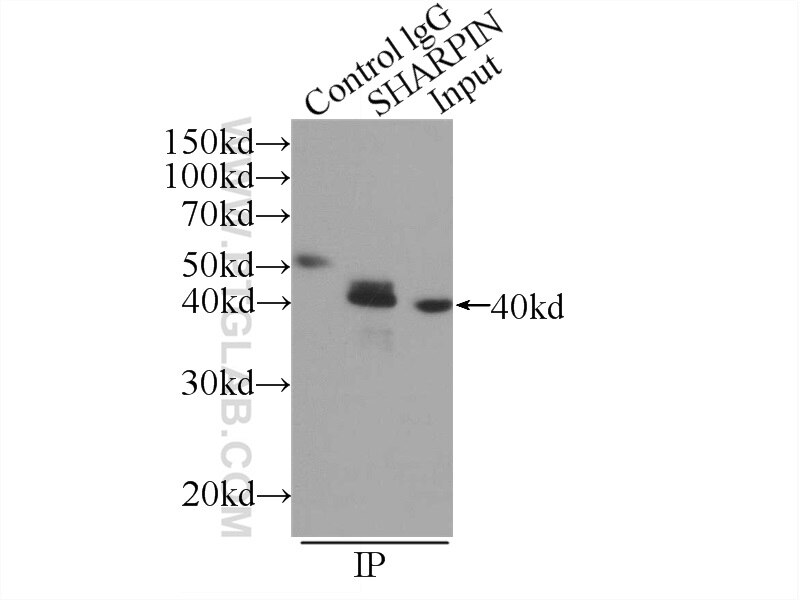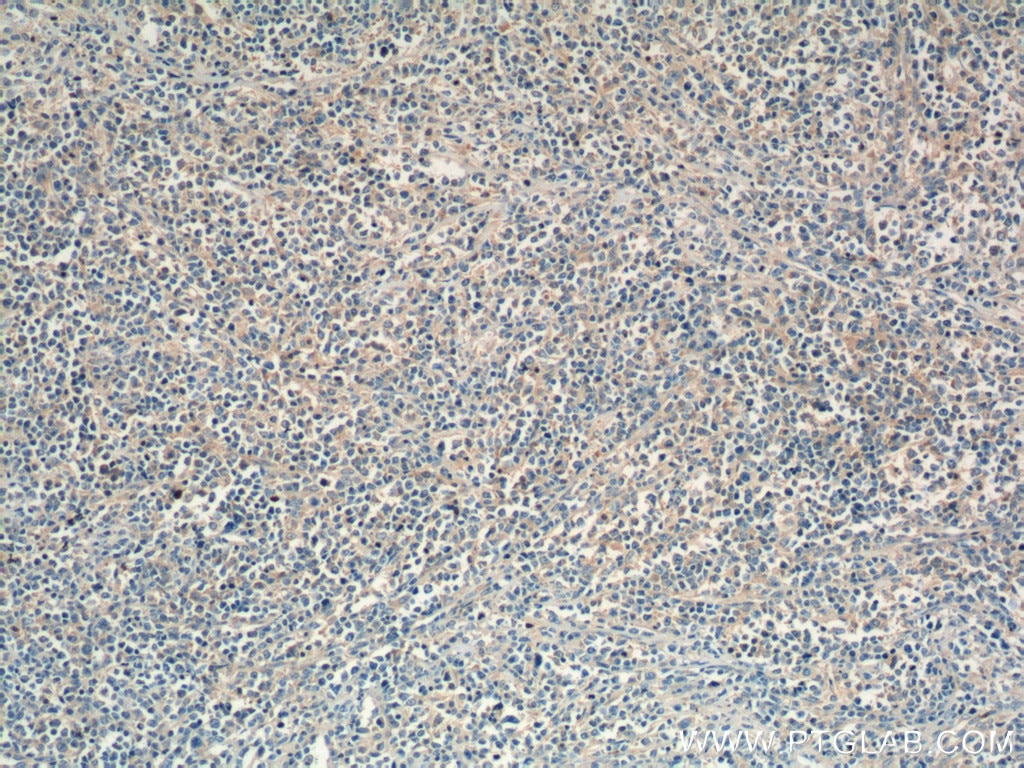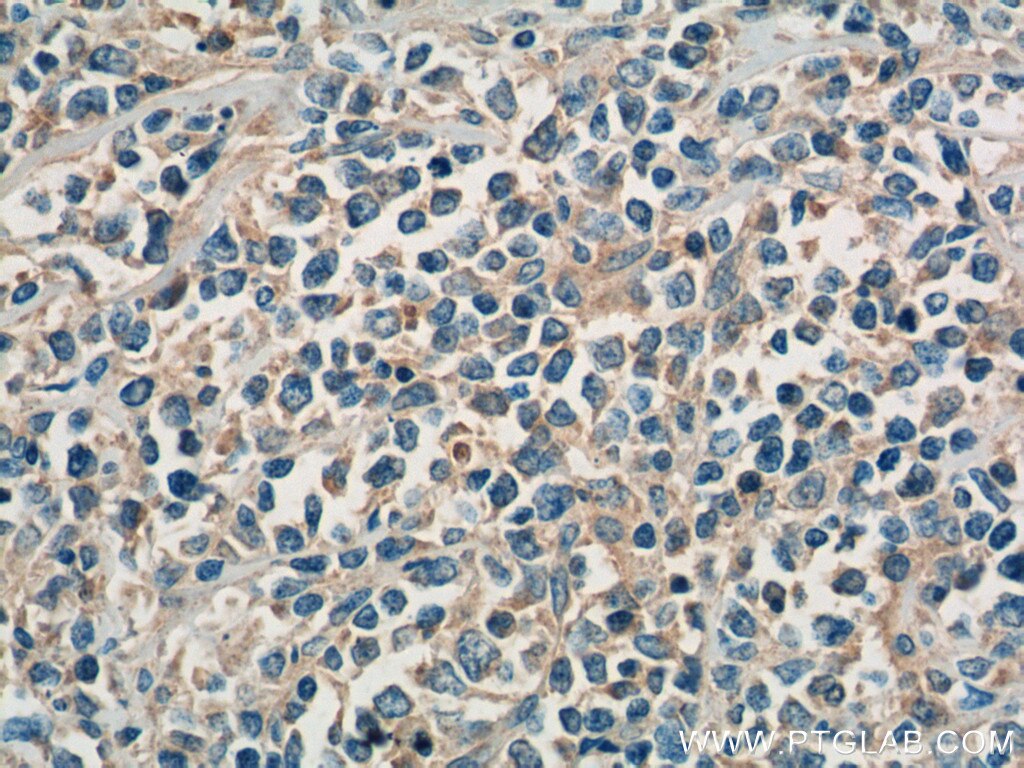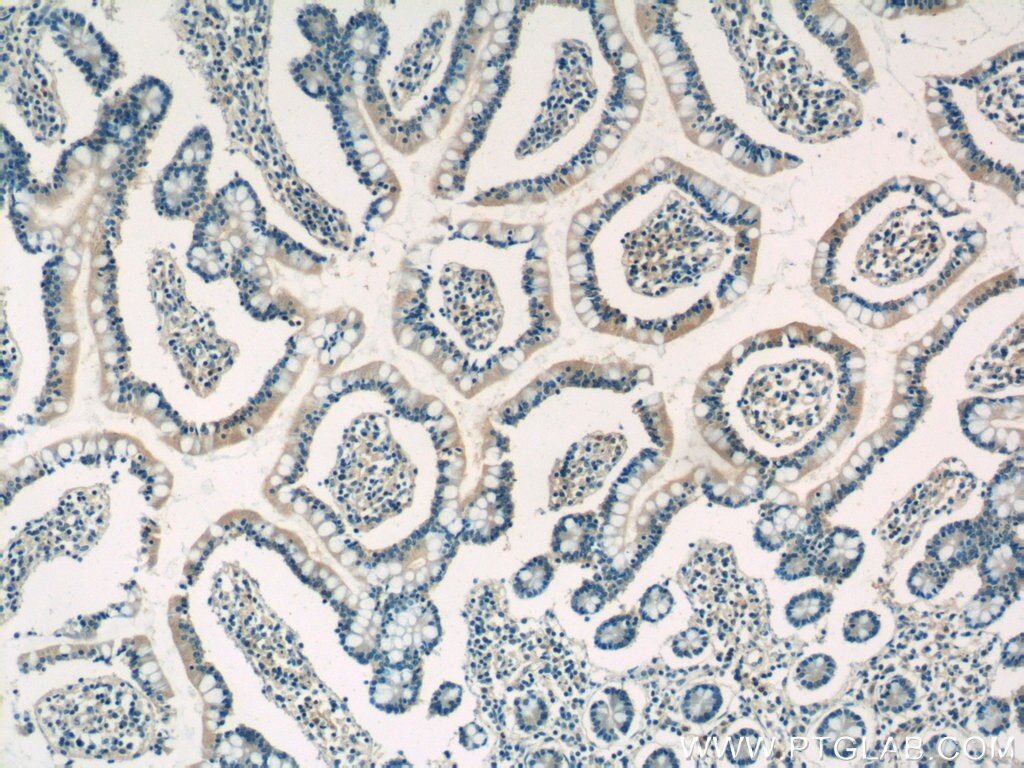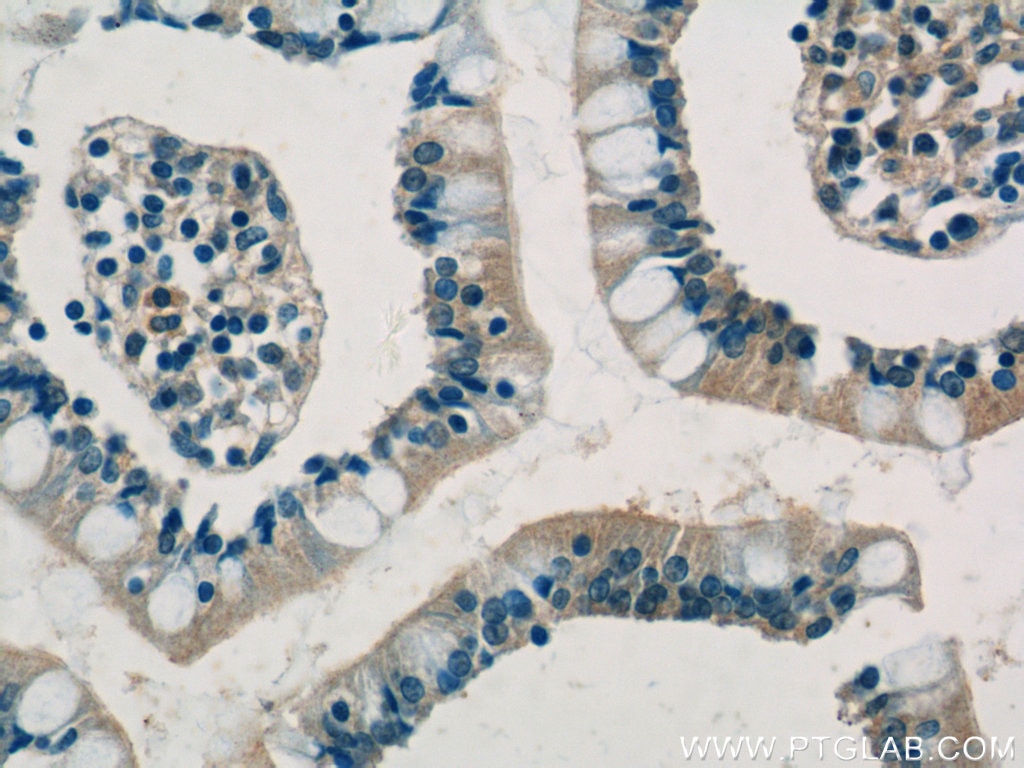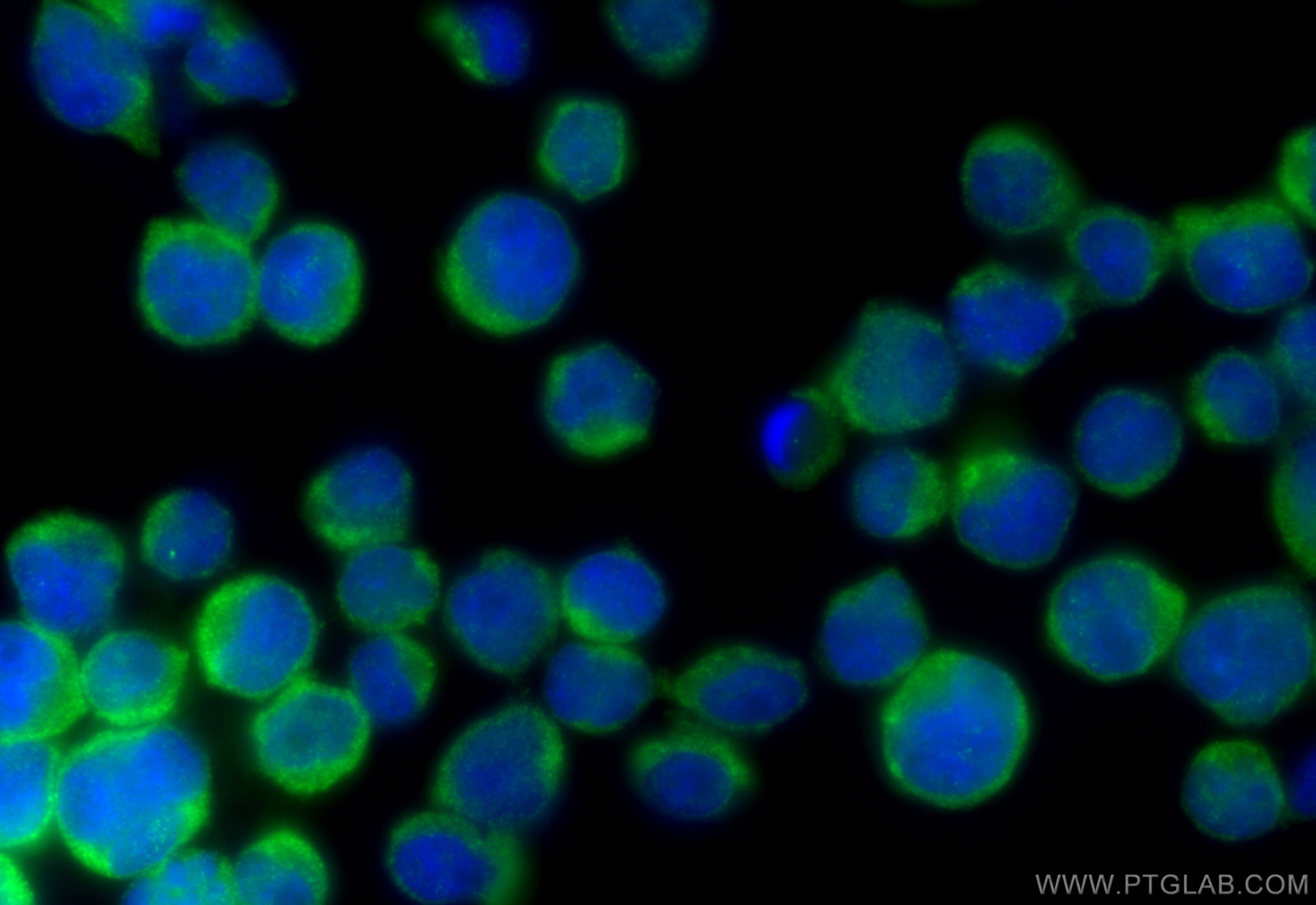Validation Data Gallery
Tested Applications
| Positive WB detected in | A549 cells, mouse brain tissue, mouse skeletal muscle tissue, Jurkat cells, Raji cells |
| Positive IP detected in | Raji cells |
| Positive IHC detected in | human lymphoma tissue, human small intestine tissue Note: suggested antigen retrieval with TE buffer pH 9.0; (*) Alternatively, antigen retrieval may be performed with citrate buffer pH 6.0 |
| Positive IF/ICC detected in | Jurkat cells |
Recommended dilution
| Application | Dilution |
|---|---|
| Western Blot (WB) | WB : 1:5000-1:50000 |
| Immunoprecipitation (IP) | IP : 0.5-4.0 ug for 1.0-3.0 mg of total protein lysate |
| Immunohistochemistry (IHC) | IHC : 1:100-1:400 |
| Immunofluorescence (IF)/ICC | IF/ICC : 1:200-1:800 |
| It is recommended that this reagent should be titrated in each testing system to obtain optimal results. | |
| Sample-dependent, Check data in validation data gallery. | |
Published Applications
| KD/KO | See 12 publications below |
| WB | See 97 publications below |
| IHC | See 4 publications below |
| IF | See 3 publications below |
| IP | See 16 publications below |
| CoIP | See 3 publications below |
Product Information
14626-1-AP targets SHARPIN in WB, IHC, IF/ICC, IP, CoIP, ELISA applications and shows reactivity with human, mouse samples.
| Tested Reactivity | human, mouse |
| Cited Reactivity | human, mouse, rat |
| Host / Isotype | Rabbit / IgG |
| Class | Polyclonal |
| Type | Antibody |
| Immunogen | SHARPIN fusion protein Ag6201 相同性解析による交差性が予測される生物種 |
| Full Name | SHANK-associated RH domain interactor |
| Calculated molecular weight | 40 kDa |
| Observed molecular weight | 40 kDa |
| GenBank accession number | BC025244 |
| Gene Symbol | SHARPIN |
| Gene ID (NCBI) | 81858 |
| RRID | AB_2187734 |
| Conjugate | Unconjugated |
| Form | Liquid |
| Purification Method | Antigen affinity purification |
| UNIPROT ID | Q9H0F6 |
| Storage Buffer | PBS with 0.02% sodium azide and 50% glycerol , pH 7.3 |
| Storage Conditions | Store at -20°C. Stable for one year after shipment. Aliquoting is unnecessary for -20oC storage. |
Background Information
SHARPIN is as a third component of the linear ubiquitin chain assembly complex (LUBAC), recruited to the CD40 and TNF receptor signaling complexes together with its other constituents, HOIL1 and HOIP(PMID:21455173).SHARPIN is enriched in the postsynaptic density and forms a complex with SHANK in heterologous cells and brain(PMID:11178875).It has 2 isoforms produced by alternative splicing.
Protocols
| Product Specific Protocols | |
|---|---|
| WB protocol for SHARPIN antibody 14626-1-AP | Download protocol |
| IHC protocol for SHARPIN antibody 14626-1-AP | Download protocol |
| IF protocol for SHARPIN antibody 14626-1-AP | Download protocol |
| IP protocol for SHARPIN antibody 14626-1-AP | Download protocol |
| Standard Protocols | |
|---|---|
| Click here to view our Standard Protocols |
Publications
| Species | Application | Title |
|---|---|---|
Nature LUBAC is essential for embryogenesis by preventing cell death and enabling haematopoiesis. | ||
Cell OTULIN Antagonizes LUBAC Signaling by Specifically Hydrolyzing Met1-Linked Polyubiquitin. | ||
Cell The Deubiquitinase OTULIN Is an Essential Negative Regulator of Inflammation and Autoimmunity. | ||
Cancer Cell A Dual Role of Caspase-8 in Triggering and Sensing Proliferation-Associated DNA Damage, a Key Determinant of Liver Cancer Development. | ||
Nat Immunol Pellino3 ubiquitinates RIP2 and mediates Nod2-induced signaling and protective effects in colitis. |
